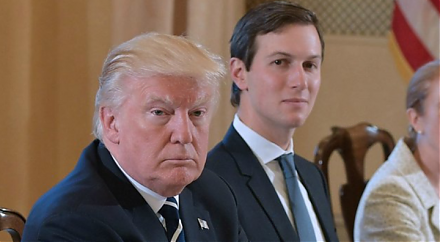

2018-02-19 08:39:00 Mon ET
trust perseverance resilience empathy compassion passion purpose vision mission life metaphors seamless integration critical success factors personal finance entrepreneur inspiration grit
The root cause of this rare incidence may be Snap's recent redesign, or Jenner's newfound motherhood. The former can be a real concern that her 25 million Twitter followers share in numerous replies. These empathetic users aggravate this deep concern about Snap's recent redesign and thereby echoes ambivalent Wall Street investor sentiments.
Several Wall Street stock analysts point out that it can be more difficult for Snap to monetize the Snapchat business model in contrast to ad-income-driven Facebook, Google, and Twitter. In recent times, Snap initiates some smart strategic moves to draw a clear line between social interactions and media posts and video streams. In fact, Snap needs to manage this interim transition well as celebrity influencers such as Kylie Jenner are an essential source of high-quality content in the Snap recipe for success. With 25 million Twitter followers, Jenner carries a great deal of social influence over millennials.
In terms of demographic attributes, the typical Snapchat user is between 18 and 24 years old and tends to have much shorter attention span.
If any of our AYA Analytica financial health memos (FHM), blog posts, ebooks, newsletters, and notifications etc, or any other form of online content curation, involves potential copyright concerns, please feel free to contact us at service@ayafintech.network so that we can remove relevant content in response to any such request within a reasonable time frame.
2023-04-28 16:38:00 Friday ET

Peter Schuck analyzes U.S. government failures and structural problems in light of both institutions and incentives. Peter Schuck (2015) Why
2017-12-21 12:45:00 Thursday ET

Tony Robbins summarizes several personal finance and investment lessons for the typical layperson: We cannot beat the stock market very often, so it w
2019-02-02 11:36:00 Saturday ET

The Trump administration teams up with western allies to bar HuaWei and other Chinese tech firms from building the 5G high-speed infrastructure due to natio
2019-07-13 07:17:00 Saturday ET

Japanese prime minister Shinzo Abe outlines the main economic priorities for the G20 summit in Osaka, Japan. First, Asian countries need to forge the key Re
2019-01-11 10:33:00 Friday ET

The Economist Intelligence Unit (EIU) continues to track major business risks in light of volatile stock markets, elections, and geopolitics. EIU monitors g
2018-01-06 07:32:00 Saturday ET

Subsequent to the Trump tax cuts for Christmas in December 2017, the one-year-old Trump presidency now aims to make progress on health care, infrastructure,